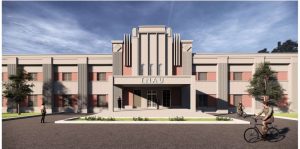
About AC&RI, Chettinad
The Agricultural College and Research Institute (AC& RI), Chettinad was started in 2021 as one of the Constituent Colleges of Tamil Nadu Agricultural University. The Institute is located at 10o09’ N Latitude, 78o47’ E Longitude and 115 m above MSL. The maximum temperature is 32.3°C, minimum temperature is 23.5°C, annual rainfall is 892 mm, soil type is red and red lateritic and climate is semi-arid tropic.
The College is situated in the Dryland Agricultural Research Station (DARS), Chettinad Farm which is spanning in an area of 317 acres. The campus is located on Trichy - Karaikudi Highway near the heritage towns of Kanadukathan and Chettinad. The nearby cities are Karaikudi (10 km) and Pudukottai (35 km). The College is well connected by Rail and Air. The nearby Railway Station is Karaikudi and airports are Trichy (80 km) and Madurai (80 km).
The heritage town Chettinad is famous for heritage foods and recipes. The Food Processing Research and Training Centre (FPRTC) has been established in the DARS Farm to invent, innovate and rediscover newer food recipes and processing technologies especially in millets, fruits and other farm produce. The Centre of Excellence in Dryland Farming (CEDF) has also been established in the DARS Farm for addressing the needs of the farmers of Sivagangai District.
Vision
To become a renowned organization in Education, Research and Extension in Agriculture
Mission
Objectives
